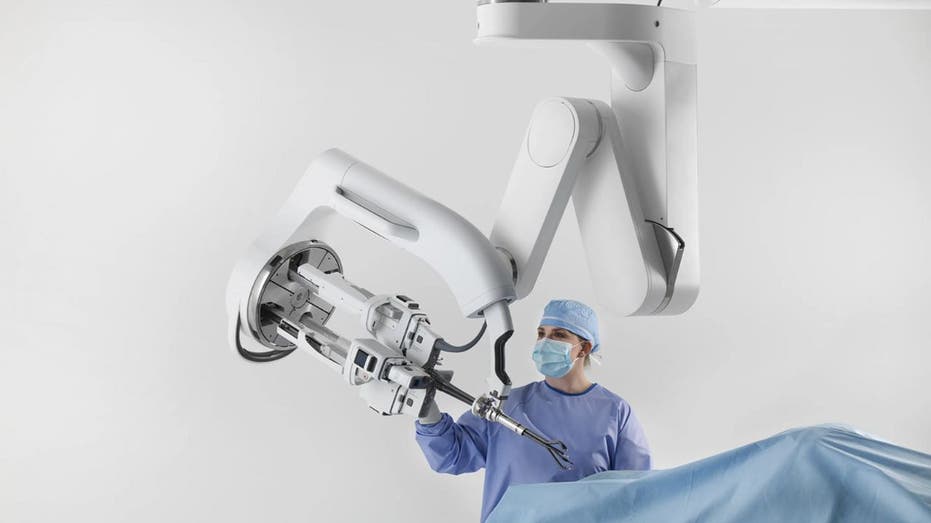
WWW.FOXNEWS.COM
Robots perform like human surgeons by just watching videos
Tech Robots perform like human surgeons by just watching videos How AI and imitation learning are shaping the future of robotic medical operations Published November 30, 2024 6:00am EST close Robots outperform human surgeons by just watching videos It's a significant step toward autonomous robotic surgery. In a groundbreaking development, researchers at Johns Hopkins University (JHU) and Stanford University have successfully trained a robotic surgical system to perform complex tasks with the skill of human doctors.This achievement marks a significant step toward autonomous robotic surgery, potentially transforming the future of medical procedures. Robotic surgical system. (Johns Hopkins University)Robots learn from watching surgical videosThe team utilized a da Vinci Surgical System, a robotic platform typically controlled remotely by surgeons. Using a machine learning technique called imitation learning, they trained the system to perform three critical surgical tasks: manipulating a needle, lifting body tissue and suturing.What sets this approach apart is the training method. Instead of painstakingly programming each movement, the robot learned by watching hundreds of videos recorded from wrist-mounted cameras on da Vinci robots during actual surgical procedures. This method allows the robot to learn from the collective experience of numerous skilled surgeons, potentially surpassing the capabilities of any single human operator. Da Vinci surgical system. (Intuitive)AI combines imitation learning with robotics for surgical precisionThe researchers developed an AI model that merges imitation learning with the machine learning architecture used in popular language models like ChatGPT. However, this model operates in the language of robotics kinematics translating visual input into precise robotic movements. This sophisticated approach allows the system to understand and replicate complex surgical maneuvers with remarkable accuracy. Da Vinci surgical system. (Intuitive)Impressive results and self-correctionThe surgical system not only executed tasks as proficiently as human surgeons but also demonstrated the ability to correct its own mistakes. As Axel Krieger, assistant professor at JHU, noted, "Like if it drops the needle, it will automatically pick it up and continue. This isn't something I taught it to do." This level of autonomy and adaptability is crucial in surgical settings where unexpected situations can arise. The robot's ability to problem-solve and adjust its actions in real time could potentially reduce complications and improve patient outcomes. Da Vinci surgical system. (Intuitive)Accelerating the path to autonomous surgeryThis breakthrough could significantly speed up the development of autonomous surgical robots. Traditional methods of programming robots for surgery are time-consuming and limited in scope. With this new approach, Krieger explains, "We only have to collect imitation learning of different procedures, and we can train a robot to learn it in a couple days." This rapid learning capability opens up possibilities for quickly adapting surgical robots to new procedures or techniques, potentially revolutionizing the field of robotic surgery.WHAT IS ARTIFICIAL INTELLIGENCE (AI)? Robotic surgical system. (Johns Hopkins University)Looking ahead: Full surgical proceduresThe JHU team is now working on expanding this technology to train robots to perform complete surgical procedures. While fully autonomous robotic surgery may still be years away, this innovation paves the way for safer and more accessible complex treatments worldwide. The ability to train robots on entire surgical procedures could lead to standardized, high-quality surgical care even in areas lacking specialized surgeons.GET FOX BUSINESS ON THE GO BY CLICKING HERE Robotic surgical system. (Johns Hopkins University)Kurts key takeawaysBy harnessing the power of AI and imitation learning, we're witnessing the birth of surgical robots that can learn and adapt much like human surgeons. As this technology continues to evolve, it holds the promise of reducing medical errors, increasing surgical precision, and potentially making advanced surgical procedures available to more patients globally. While there are still challenges to overcome, including ethical considerations and regulatory approvals, the future of AI-assisted and autonomous robotic surgery looks increasingly promising.CLICK HERE TO GET THE FOX NEWS APPWould you feel comfortable undergoing surgery performed by a robotic system trained using AI and imitation learning? Let us know by writing us atCyberguy.com/ContactFor more of my tech tips and security alerts, subscribe to my free CyberGuy Report Newsletter by heading toCyberguy.com/NewsletterFollow Kurt on his social channels:Answers to the most-asked CyberGuy questions:New from Kurt:Copyright 2024 CyberGuy.com.All rights reserved. Kurt "CyberGuy" Knutsson is an award-winning tech journalist who has a deep love of technology, gear and gadgets that make life better with his contributions for Fox News & FOX Business beginning mornings on "FOX & Friends." Got a tech question? Get Kurts free CyberGuy Newsletter, share your voice, a story idea or comment at CyberGuy.com.
0 Yorumlar
0 hisse senetleri



